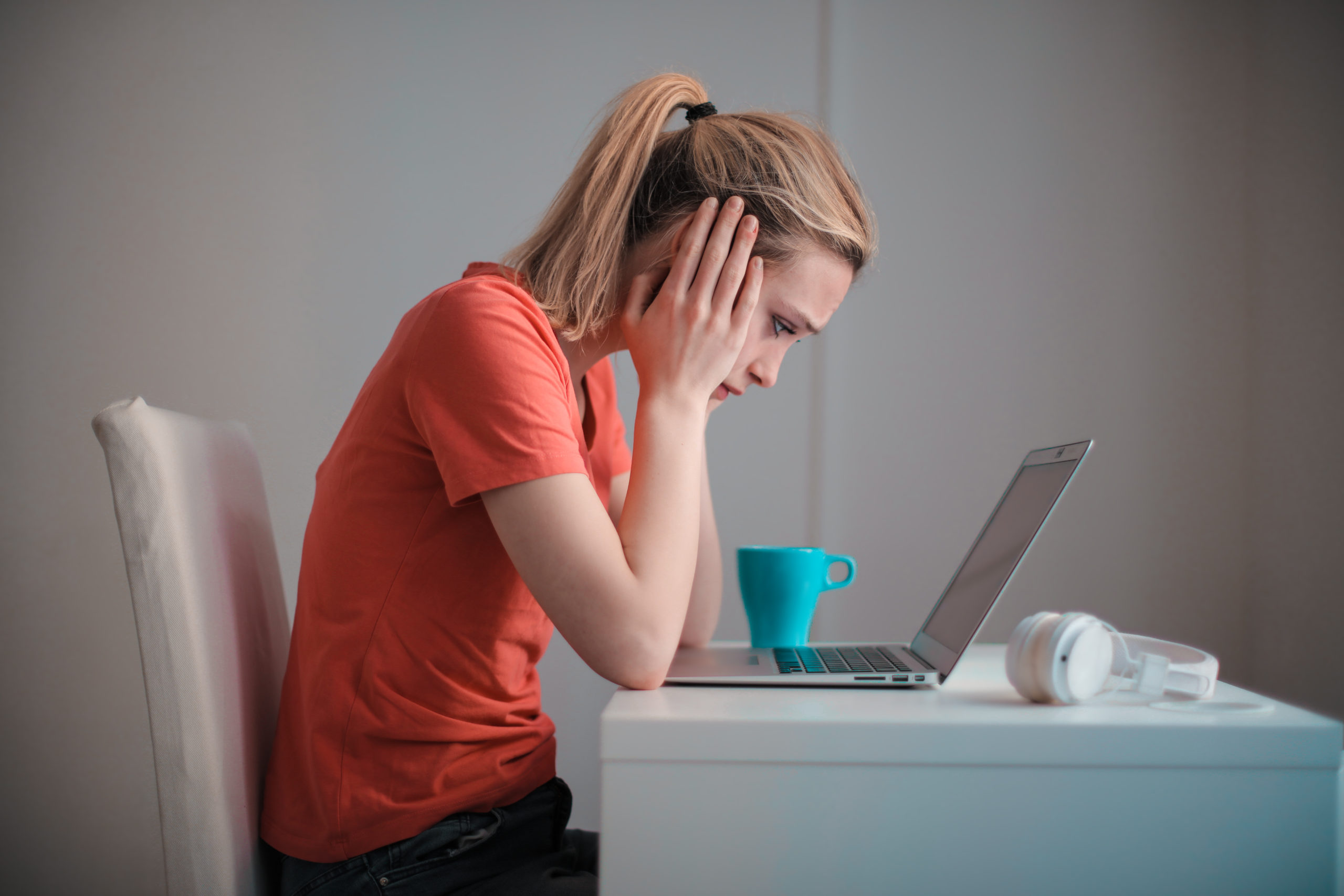
27 May Is coronavirus making us crazy? Anxiety and separation in the time of covid-19
As the Covid-19 pandemic continues to course through America and the world at large, and yet, simultaneously, the minute details of our homebound lives with equal abandon, there is one word that comes up frequently when discussing its tireless charge: unprecedented. Scientists and historians may offer comparisons to pandemics of centuries past, but for the majority of us, cozily settled in a world with vaccines, hand sanitizer, and WebMD, this is something entirely new.
To gauge how the pandemic was affecting the emotions (namely anxiety and connectedness) of Americans, Zenzi researchers recently surveyed 708 adults. The results shine a light on the support systems and fault lines that play key roles in the human experience during the Coronavirus pandemic.
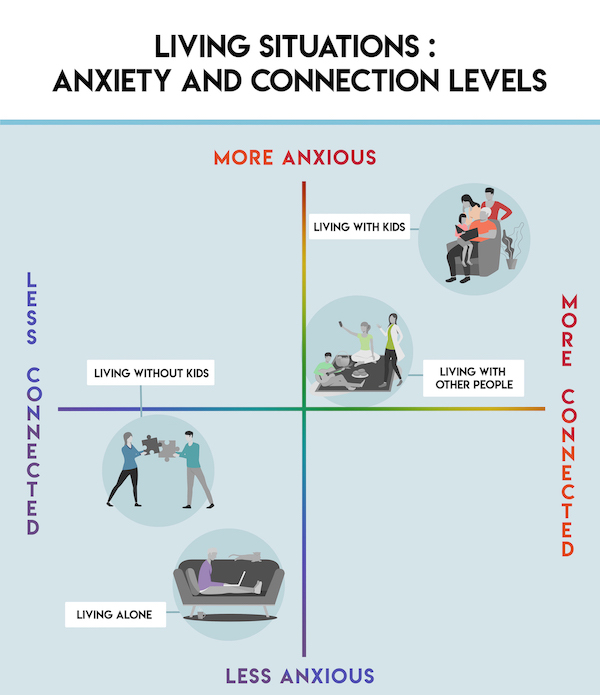
Let’s start at home — because where else? According to our study, those who have been quarantining alone feel less anxiety than those who are living with others, but they also feel less connected overall. We also found that people with children have higher anxiety levels than their childless counterparts, but that they do feel the benefit of being more connected. Unsurprisingly, our study found that those who felt the most connection during this time also reported greater feelings of wellbeing.
While one’s living situation is a pretty determined thing, the way they spend their time is not — yet it also has strong ties to feelings of connection or of isolation during the pandemic.
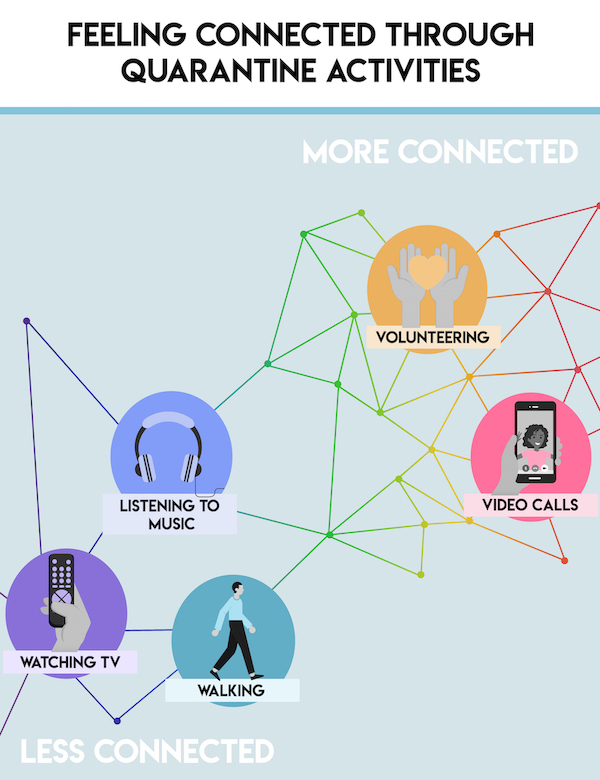
So what is considered time well spent, from a mental health perspective? Volunteering was the single biggest predictor of feelings of togetherness and wellbeing, though only 5% of participants stated that it was their primary method of connecting. Checking in with people also ranked high in terms of emotional benefits, with video calls being the preferred method over calling and texting — likely because of the visual aspect of the correspondence. It’s one thing to be told that Grandma is doing ok, it’s another to see it with your own eyes.
On the other end of the spectrum, activities such as walking, listening to music, and watching TV were associated with higher feelings of disconnect. Though none of these activities is unhealthy or self-destructive, this is likely due to their more isolated nature. So if you are feeling lonely, but like taking walks, consider FaceTiming a friend next time you’re out for a stroll.
There were certain activities/ coping mechanisms also associated with strong feelings of anxiety. These were: spending time online, starting new hobbies, stockpiling supplies and/ or groceries, and using alcohol and/ or drugs. Like walking, listening to music, and watching TV, these anxiety-inducing endeavours also favor the solitary state. However, they also played into the worse habits of humans, like paranoia, distraction, or indulgence. Dedicating time to an existing hobby or passion was a more positive use of time, being associated with lower levels of anxiety.
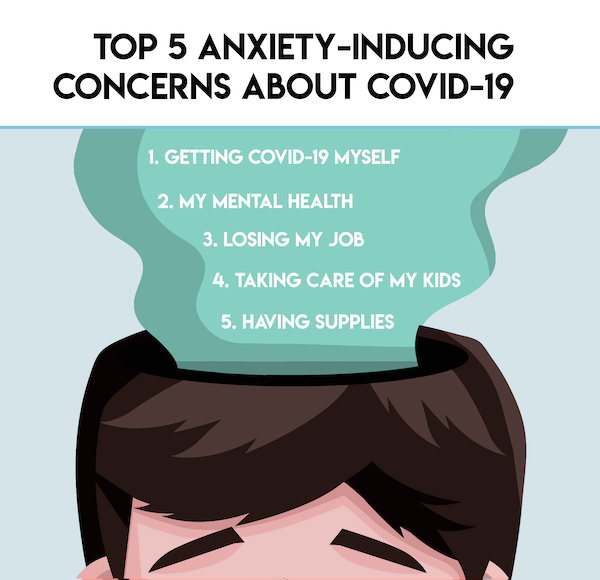
Of those who reported feeling anxiety, their primary concerns were more focused on themselves and the practical aspects of their lives, rather than apprehensions about the bigger picture. According to our study, there was no difference in the anxiety levels between employed and unemployed individuals, though those who lost income because of the pandemic did report more feelings of worry.
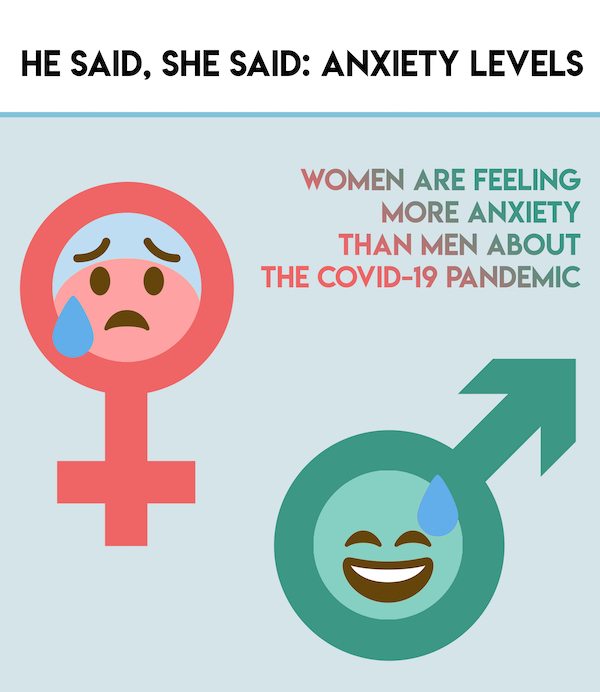
Worrying seems to be a woman’s game currently, as our study found that women are experiencing higher levels of anxiety than men. Additionally, those who watch/ read the news were proportionally more anxious with increased intake of Covid-19 coverage.
So what does all of this mean? That we’re in this together, but that we need more togetherness. That people are just trying to get by, but also get better by helping others. That there are circumstances out of our control, but also ways to curb the worst feelings when they arise. This is a new situation … you may even call it “unprecedented.” It will end, but not as quickly as many would hope. And while this study is just a small look into the minds stuck at home and sifting through many unbelievable changes, the insights gained into feelings of connection and anxiety can help us understand ourselves, our neighbors, and our new world a little better.




